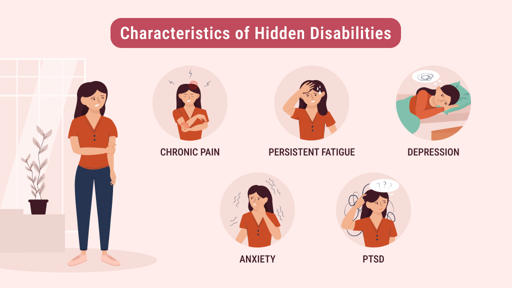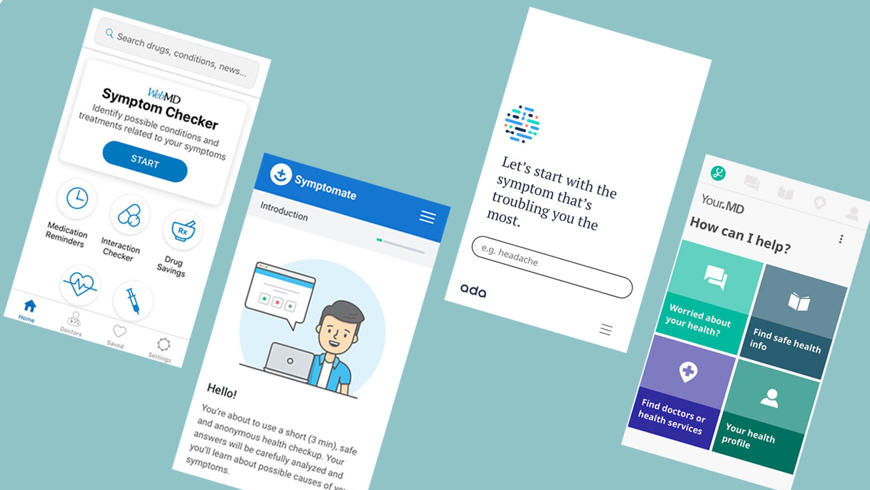The Ultimate Guide to Identifying Hidden Illnesses
Understanding Symptoms, Diagnosis, and Appropriate Responses

Frequently Asked Questions
Some common hidden illnesses include fibromyalgia, chronic fatigue syndrome, irritable bowel syndrome (IBS), systemic lupus erythematosus, and various mental health conditions such as anxiety and depression.
To effectively advocate for yourself, maintain a symptom diary, be open with your healthcare provider about your experiences, seek second opinions if necessary, and educate yourself about relevant conditions and potential treatments.
Step by Step Guide
1
Understanding Hidden Illnesses
Hidden illnesses, often known as invisible illnesses, are medical conditions that are not immediately apparent to others. These can range from autoimmune diseases to mental health issues, and their symptoms can be subtle or misinterpreted. The first step in identifying these illnesses is understanding what they encompass and their overall impact on individuals' lives.
2
Recognizing Common Invisible Illnesses
Educate yourself about common hidden illnesses such as fibromyalgia, chronic fatigue syndrome, irritable bowel syndrome (IBS), and depression. This knowledge includes recognizing symptoms that might not be visible but significantly affect a person's daily function and quality of life. Understanding these conditions aids empathy and support.
3
Identifying Symptoms
Take note of subtle symptoms that may indicate a hidden illness. This could include persistent fatigue, pain without apparent cause, difficulty concentrating, or emotional changes. Keep a symptom diary to track these occurrences, as this information can be helpful in discussing health concerns with a healthcare professional.
4
Understanding Triggers
Many hidden illnesses have specific triggers, such as stress, certain foods, or environmental factors. Keeping a log of when symptoms occur can help identify these triggers and contribute to a more accurate diagnosis and effective management strategies.
5
Consulting Healthcare Providers
If you suspect a hidden illness, it’s crucial to consult a healthcare provider. Prepare for appointments by bringing your symptom diary and any relevant medical history. Be open and honest about your experiences, as this will help your doctor understand your condition better.
6
Requesting Appropriate Tests
Depending on your symptoms, your healthcare provider may recommend tests to rule out certain conditions or diagnose a specific illness. These may include blood tests, imaging studies, or referrals to specialists. Advocating for yourself is key, so don’t hesitate to ask for specific tests or second opinions.
7
Exploring Treatment Options
Should a hidden illness be diagnosed, explore treatment options with your healthcare provider. This may include medications, therapies, lifestyle changes, or a combination of these. Education about your illness is important for understanding and managing your condition.
8
Connecting with Support Groups
Joining a support group can provide emotional solace and practical advice. These groups often share personal experiences and coping strategies, helping you feel less isolated while managing your hidden illness.
9
Maintaining Mental Health
Mental health support is critical when dealing with a hidden illness. Consider therapy or counseling to navigate the psychological aspects, improve coping mechanisms, and maintain overall well-being.
10
Empowering Others
Educate those around you about invisible illnesses. Raising awareness can reduce stigma and foster understanding. Sharing your journey helps create a supportive environment for others who may be struggling with similar issues.
11
Self-Care Practices
Implement self-care practices to improve your daily function. This can include mindful practices like yoga, meditation, adequate sleep, healthy eating, and gentle exercise, which all contribute to improved well-being.
12
Continuing Education
Stay informed about research and advancements related to hidden illnesses. The medical field is continually evolving, and new treatment options or diagnostic tools can emerge that may enhance the management of your condition.








